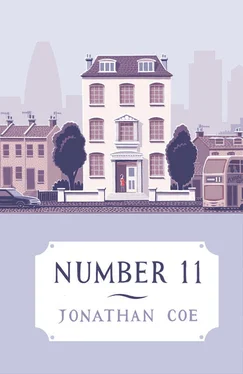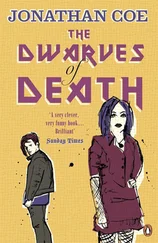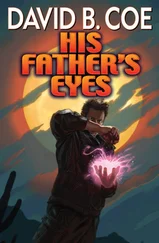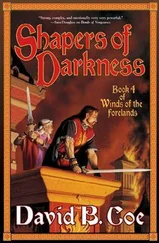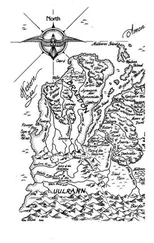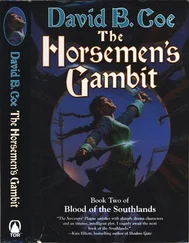‘You’ve been here a few times before, then, have you?’ Rachel asked.
‘Yes, Roger and I used to come here quite often. You don’t have to be a David Kelly obsessive to like Harrowdown Hill. It’s a nice walk, apart from anything else. Which is why he took it that afternoon, of course.’
They pulled in to the car park of The Blue Boar pub, a cosy, welcoming thatched building in Cotswold stone, which nonetheless appeared to be closed this afternoon, going by the dimness of the lighting just about visible through its tiny windows. Wrapping up against the now very tangible chill, the two women turned right out of the car park and set off down the lane at a brisk pace, with little Harry dawdling behind them, tracing a more erratic route which involved zig-zagging from one side of the lane to the other. It was a no-through road, and there was no traffic: any approaching cars would have been easy to hear, so Laura did not seem at all concerned that he was playing unsupervised. She was more worried that he was holding them back.
‘Hurry up , Harry!’ she called, turning and frowning at him. ‘You’ve got to keep up with us. You’re making us all go too slowly.’
Harry ran towards her obediently and clasped her hand. Mother and son walked along like that for half a minute or so; then Rachel noticed that Laura unloosed his hand and let it fall.
‘So,’ Laura now said, ‘this is the lane he would have walked along, at about three o’clock in the afternoon. And that’s the hill he was making for — look, just ahead on the left.’
Rachel’s eyes followed her pointing finger, towards a nondescript, tree-covered mound in the landscape which made the word ‘hill’ seem somewhat hyperbolic. In the rapidly fading daylight, it did not look especially beautiful.
‘We won’t be able to get into the wood,’ Laura added. ‘They’ve put barbed wire around it now.’
Before long the tarmac had petered out and they found themselves walking up a dirt track, overgrown with grass and bordered with weeds and wild flowers. Harry took a stick to these and was soon hacking them down with gusto.
‘I can see why they’d do that,’ said Rachel. ‘You’re right, it does feel a bit … morbid, coming here.’
‘Why do you remember the news story so clearly, do you think?’ Laura asked. ‘You must have been very young when it happened.’
‘I was ten. I was staying with my grandparents, and I remember them being very shocked by it. My grandad always hated Tony Blair so of course he was prepared to think the worst. I mean, I’m not sure he thought he was murdered or anything, but he definitely thought there was something strange about it …’
‘I know, it felt very … odd , didn’t it, that day?’ Laura said. ‘But I’m not sure I believe in conspiracy theories, and what Roger said afterwards … He just thought that a line had been crossed, a terrible line, and it was the shockwaves of that which were giving everyone the sense that there was something else going on, something mysterious.’
They passed a sign which read ‘River Thames, ¾ Mile’, which surprised Rachel: she had not realized that the river was nearby. Harry was starting to look cold. Another few minutes and they would be as close to the top of the hill as the path allowed, with the fatal woodland spreading out to their left.
‘He had this theory,’ said Laura, ‘— Roger was full of theories, mainly I suppose because that’s what he got paid for … Anyway, this one was that every generation has a moment when they lose their innocence. Their political innocence. And that’s what David Kelly’s death represented for our generation. Up until then, we’d been sceptical about the Iraq war. We’d suspected the government wasn’t telling us the whole truth. But the day he died was the day it became absolutely clear: the whole thing stank. Suicide or murder, it didn’t really matter. A good man had died, and it was the lies surrounding the war that had killed him, one way or another. So that was it. None of us could pretend any longer that we were being governed by honourable people.’
‘That sounds about right,’ said Rachel. ‘But it’s sad.’
‘What’s sad about it?’
‘Losing your innocence. It’s just about the worst thing that can happen. Isn’t that what Paradise Lost is all about?’
‘Innocence is overrated,’ said Laura. ‘Anyone who hankers after lost innocence is … well, I don’t trust them.’ They had reached the edge of the woodland and were peering aimlessly into it, wanting to find meaning in its tangle of greenery and undergrowth. Harry was behind them, tugging at Laura’s coat, trying to get her attention, instinctively but for no particular reason. ‘Look at him, for instance,’ she said, glancing down at her son, whose eyes met hers in a plaintive but unspecific appeal. ‘He still has his innocence. Do you envy him for it? He still thinks his Christmas presents are brought by a big bloke in a red suit, in a sleigh pulled by reindeer. What’s so great about that?’
It was almost dark now. Putting her hands into her pockets and pulling her coat tighter, Laura started to lead the way back down the path towards the village.
‘I could tell you a story,’ she said, ‘about what happens when someone longs too much for innocence.’
Rachel looked down at Harry. Their eyes met and he shrugged: neither of them could guess what his mother was talking about. Rachel took his hand as they walked back down the hill.
*
Keisha had left a casserole in the oven for them: all Laura had to do was boil some rice. They ate in the kitchen, after which Laura went upstairs to put Harry to bed. It always took longer than she would like: when she came back down and joined Rachel in the sitting room, she found that she had managed to light a good fire, with a neat pyramid of logs already flaming on a nest of kindling wood and back issues of the Guardian. Now Rachel was sitting in one of the two sagging but comfortable armchairs placed on either side of the fire, her eyes fixed on the screen of her smart phone.
‘This is a bit harsh,’ she said, looking up only briefly to say thank you as Laura put a glass of red wine down on the table beside her. ‘“A film that makes you want to stab out your eyes with red hot knitting needles.” And that’s one of the better reviews.’
‘What are you looking at?’ said Laura, sitting down opposite her.
‘I’m on the IMDb, looking at reviews of that film you showed me earlier.’
‘ What a Whopper ?’
‘Yes. It doesn’t seem to have many fans on here. I think your husband must have been in a small minority.’
‘Oh, I wouldn’t say that he was a fan, exactly. He knew rubbish when he saw it. But Roger responded to books and films in all sorts of different, contradictory ways. That was one of the nice things about him. And also one of the most frustrating. And of course, everything was grist to his mill as a critic. Look — I’ll show you something.’
She left the room and returned carrying a thick, leather-bound A4 notebook. When she opened it Rachel could see that page after page was covered with dense, spidery handwriting. It was a catalogue of films, in roughly alphabetical order, all of them glossed with Roger’s fragmentary, rather cryptic annotations.
‘What does he say about it in there?’ Laura asked.
Rachel turned to the ‘W’ section and soon found What a Whopper .
Lame British comedy , she read , about a bunch of beatniks who travel to Loch Ness to build a model of the monster.
1962. Sequel to What a Carve Up! (1961)? Not really. Two of the same actors.
*Sequels which are not really sequels. Sequels where the relationship to the original is oblique, slippery.
Читать дальше
